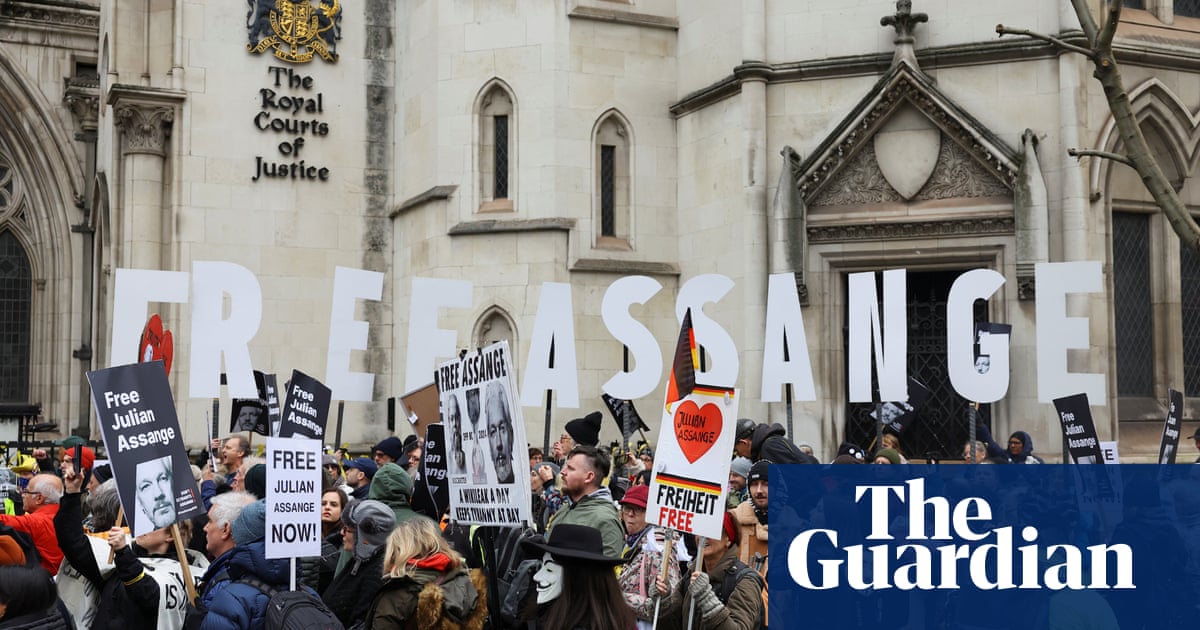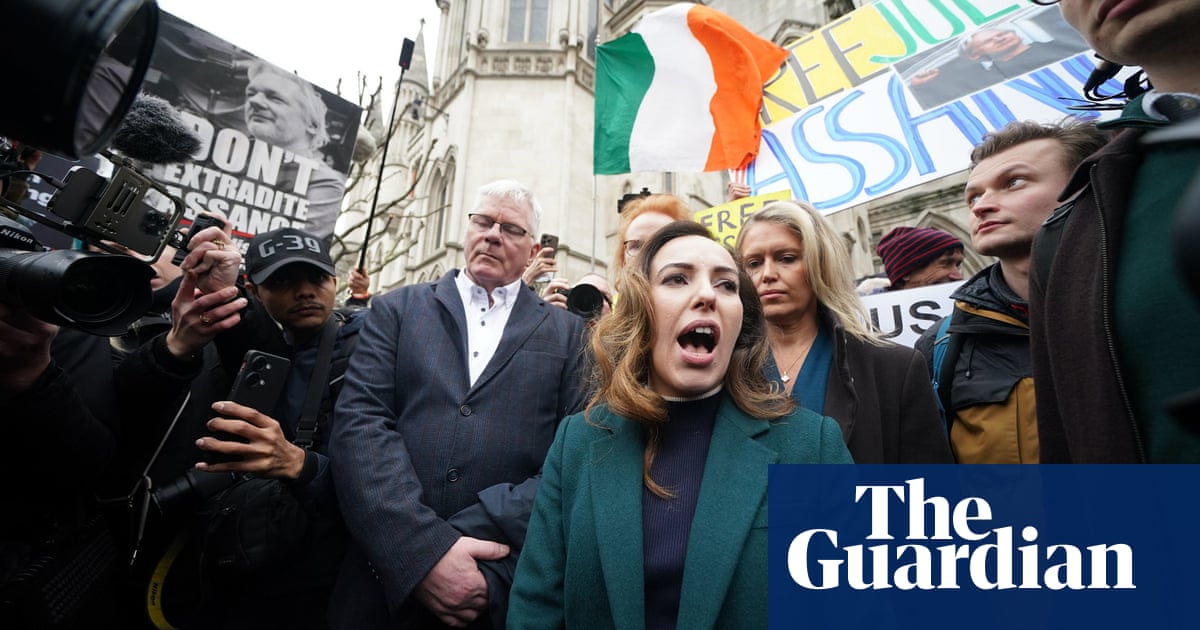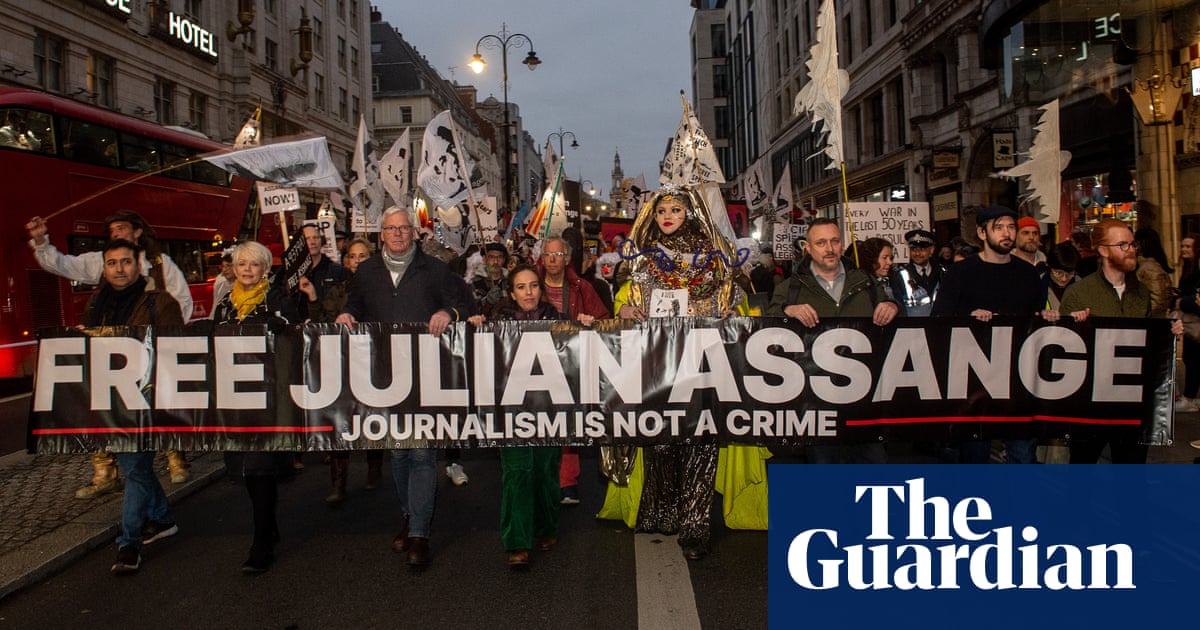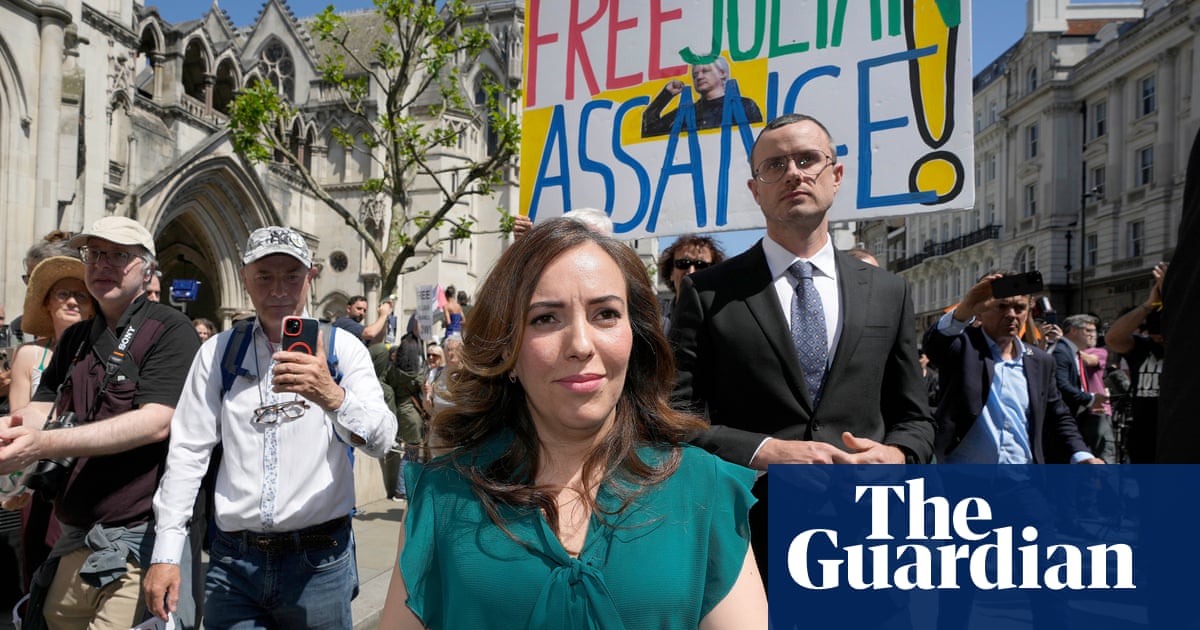
Lawyers for Julian Assange have failed to adjourn the extradition case against him after objecting to newly introduced US prosecution evidence accusing him of recruiting hackers to steal military secrets.
On the opening day of a four-week hearing, the WikiLeaks founder appeared at the Old Bailey to resist an application to send him to the US to answer an 18-count American indictment.
Wearing a dark suit, tie and white shirt, Assange, 49, sat behind a glass security screen at the back of the court, his glasses pushed back on top of his head.
Before coming to court, he had been formally rearrested on the new US indictment which updates and broadens previous charges. All but one are for violations of the country’s Espionage Act.
Asked whether he was prepared to consent to be extradited to the US, Assange replied: “No.”
The district judge, Vanessa Baraitser, commented: “That was the response I was anticipating.”
Mark Summers QC, for Assange, said the late serving of the new US indictment was “abnormal, unfair and liable to create real injustice”.
The additional material had appeared out of the blue, Summers said. It presented extra allegations of criminality which it claimed on their own might be separate grounds for extradition, such as stealing data from banks, obtaining information on tracking police vehicles, and supposedly “assisting a whistleblower [Edward Snowden] in Hong Kong”.
“This is essentially a fresh extradition request,” Summers added, presented at short notice at a time when Assange has been “inhibited” from speaking to his defence lawyers.
Summers said: “We believe the US saw the strength of the defence case and thought they would lose [and so introduced the additional material].” He asked the judge to “excise” or dismiss the belated extra US indictments.
But Baraitser refused the defence request, saying she had previously offered Assange’s lawyers an opportunity to adjourn the hearing to give them more time to deal with the new US indictment. That had been declined.
After lunch, an attempt to adjourn the case was made by Edward Fitzgerald QC, also for Assange, on the grounds that the defence had not had sufficient time to gather evidence relating to the new US indictment.
Baraitser also refused that request, saying any further delay would put the hearing back to January and she would review concerns as the case progressed.
The new material in the new US indictment covers allegations of Assange’s alleged cooperation with and encouragement of hackers from the group LulzSec.
The indictment says Assange and WikiLeaks “repeatedly sought, obtained, and disseminated information that the United States classified due to the serious risk that unauthorised disclosure could harm the national security of the United States”.
“To recruit individuals to hack into computers and/or illegally obtain and disclose classified information to WikiLeaks, the WikiLeaks website posted a detailed list of ‘The Most Wanted Leaks of 2009’, organised by country.”
At the start of the hearing, both sides released detailed “skeleton” arguments, setting out their legal claims.
The one submitted by James Lewis QC, acting for the US authorities, runs to 99 pages along, with the 48-page “second superseding indictment”. The two-part skeleton argument written by Edward Fitzgerald QC, representing Assange, runs to almost 200 pages.
In his submission, Lewis accused Assange’s lawyers of conducting a defence consisting of “an attack upon the president of the United States [which] ignores the institutional competencies of the agencies relevant to this case, the constitution of the United States and the independence of its courts”.
Fitzgerald’s submission asserted that the prosecution was “being pursued for ulterior political motives and not in good faith”.
He added: “The [US] request seeks extradition for what is a classic ‘political offence’. Extradition for a political offence is expressly prohibited by article 4(1) of the Anglo-US extradition treaty. Therefore, it constitutes an abuse of this court’s process to require this court to extradite on the basis of the Anglo-US treaty in breach of the treaty’s express provisions.”
Explaining the short delay to the start of proceedings, Fitzgerald said this had been the first time in six months he had managed to see his client.
The case is being heard at the Old Bailey in London, with lawyers, observers and the media spread out across several other courts listening to proceedings via video link.
Later in the afternoon, Prof Mark Feldstein, a former investigative journalist, appeared from the US by remote videolink. He said government officials often leaked information themselves – for example, in 2003, about Saddam Hussein’s alleged possession of weapons of mass destruction.
“No matter how unorthodox, Assange is a publisher and is protected by the free speech and free press clauses of the American constitution,” Feldstein said in a submission. “He has published truthful information in the public interest that exposed illegal and unethical actions by the US government.”
The hearing continues.












